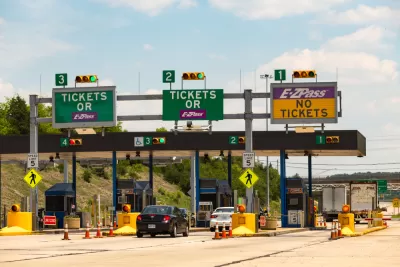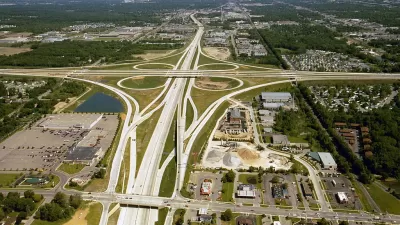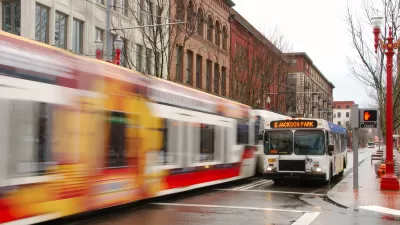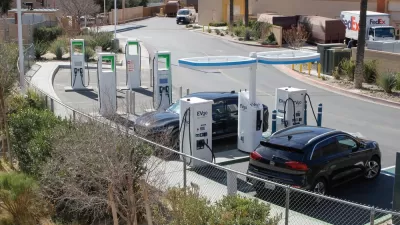No one lakes toll roads, but everyone relies on the revenue they generate for all kinds of transportation projects.

Luz Lazo reports:
Add another victim to the list of industries hit hard by the coronavirus pandemic: toll road operators.
The industry’s losses, which by estimates will exceed $9 billion nationwide, are prompting public and private toll operators to tap their reserves, delay capital projects and cut jobs.
The consequences of the downturn in the toll road business has consequences for other kinds of projects as well: revenue from toll roads is used to finance construction on other projects. While construction projects haven't seen an impact yet in the D.C. area, according to Lazo, operations are already taking a hit, and worse is yet to come.
The Maryland Transportation Authority said it is not funding vacant positions and is deferring the replacement and purchase of additional equipment such as computers. It has saved money by not funding vacant positions and not renewing 44 temporary toll collection contracts; the state moved to an all-electronic system during the pandemic.
And in Virginia, it's expected that construction will eventually face funding consequences:
In Virginia, lost revenue from the 66 Express Lanes means the corridor is unlikely to yield millions of dollars that would help pay for new bus routes and the construction of new Metro station entrances and bus lanes.
The article includes details about revenue on specific toll roads in the D.C. area as well as locations farther afield, like Pennsylvania, Georgia, and California, in addition to a lot more context and analysis on the effect of the novel coronavirus on toll road revenue.
FULL STORY: People are driving less and skipping the toll roads, leaving less money for local projects

Maui's Vacation Rental Debate Turns Ugly
Verbal attacks, misinformation campaigns and fistfights plague a high-stakes debate to convert thousands of vacation rentals into long-term housing.

Planetizen Federal Action Tracker
A weekly monitor of how Trump’s orders and actions are impacting planners and planning in America.

San Francisco Suspends Traffic Calming Amidst Record Deaths
Citing “a challenging fiscal landscape,” the city will cease the program on the heels of 42 traffic deaths, including 24 pedestrians.

Defunct Pittsburgh Power Plant to Become Residential Tower
A decommissioned steam heat plant will be redeveloped into almost 100 affordable housing units.

Trump Prompts Restructuring of Transportation Research Board in “Unprecedented Overreach”
The TRB has eliminated more than half of its committees including those focused on climate, equity, and cities.

Amtrak Rolls Out New Orleans to Alabama “Mardi Gras” Train
The new service will operate morning and evening departures between Mobile and New Orleans.
Urban Design for Planners 1: Software Tools
This six-course series explores essential urban design concepts using open source software and equips planners with the tools they need to participate fully in the urban design process.
Planning for Universal Design
Learn the tools for implementing Universal Design in planning regulations.
Heyer Gruel & Associates PA
JM Goldson LLC
Custer County Colorado
City of Camden Redevelopment Agency
City of Astoria
Transportation Research & Education Center (TREC) at Portland State University
Jefferson Parish Government
Camden Redevelopment Agency
City of Claremont





























